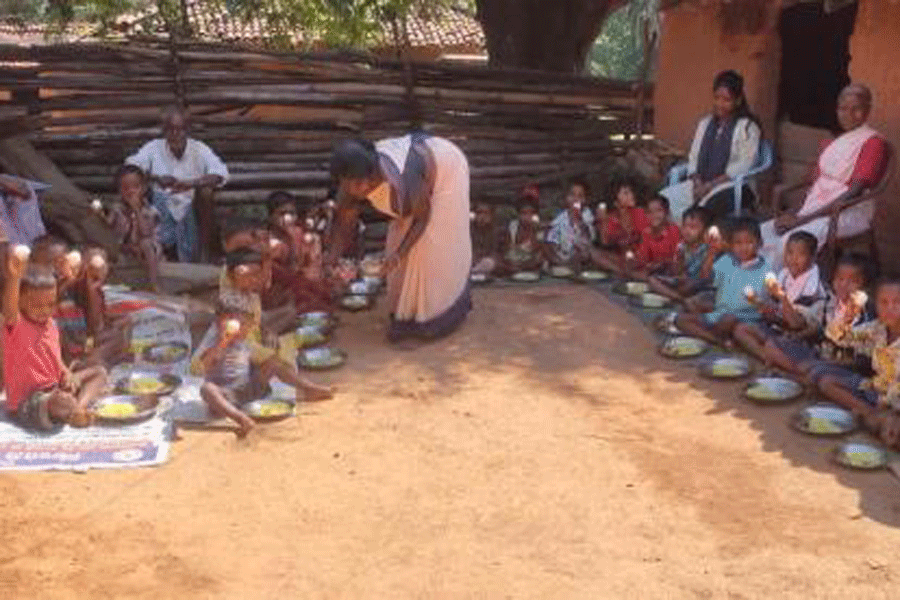Villagers, NGOs and Right to Food Campaign activists collected funds and distributed eggs in over 100 anganwadis in more than 20 districts (out of 24 districts in the state) in Jharkhand on Thursday to remind the state government of its promise of distributing eggs in schools and anganwadis.
Anganwadi centres are operational as part of the Integrated Child Development Services of central and state government to combat child hunger and malnutrition.
“We had no option but to collect funds from villagers, like-minded NGOs and also took support from food security activists to purchase and distribute eggs in over 100 anganwadis on Thursday. We hope that at least now the government will wake up and fulfil its promise of providing eggs daily in anganwadis and at least five days a week in mid-day meals at schools,” said Asharfi Nand Prasad, state convenor of Right to Food Campaign.
The state cabinet last year sanctioned distribution of eggs in anganwadis and in mid-day meals in schools.
The move assumes significance in a state like Jharkhand which, according to a recent report on multidimensional poverty index (MPI) by NITI Aayog, has the second highest rate of MPI among Indian states with 29 per cent of its population affected.
According to National Family Health Survey-5, 2019-2021, Jharkhand’s 56.8 per cent pregnant women are anaemic, while 39.6 per cent children are stunted.
According to the same survey, 67.5 per cent children below the age of five were anaemic in 2021 and 39.4 per cent of them were underweight.
Development economist and one of the architects of MGNREGA, Jean Dreze, has on several occasions strongly pleaded that egg should be made part of the mid-day meals every day and in anganwadis as it is most nutritious commodity and its introduction will go a long way in enhancing nutrition in the state and also increasing the school attendance.
“Over 2,000 children were fed eggs in the presence of village heads, public representatives, anganwadi workers, parents of children and social workers. We also discussed the situation of malnutrition and the need for eggs at the local level and in the entire state,” said Prasad.
According to media reports, centralised contracts are being arranged for private contractors to provide eggs in anganwadi because of which there is a delay in providing eggs.
“There is bound to be corruption and delay in centralised contracts which will have a direct impact on malnutrition of children. There is no need for contracting in anganwadi — anganwadi can purchase eggs locally. At present, two eggs are available in the mid-day meal in schools a week, which are purchased locally. If this system is running successfully in schools, then it will work in anganwadi also,” said James Herenz, a food right activist.










